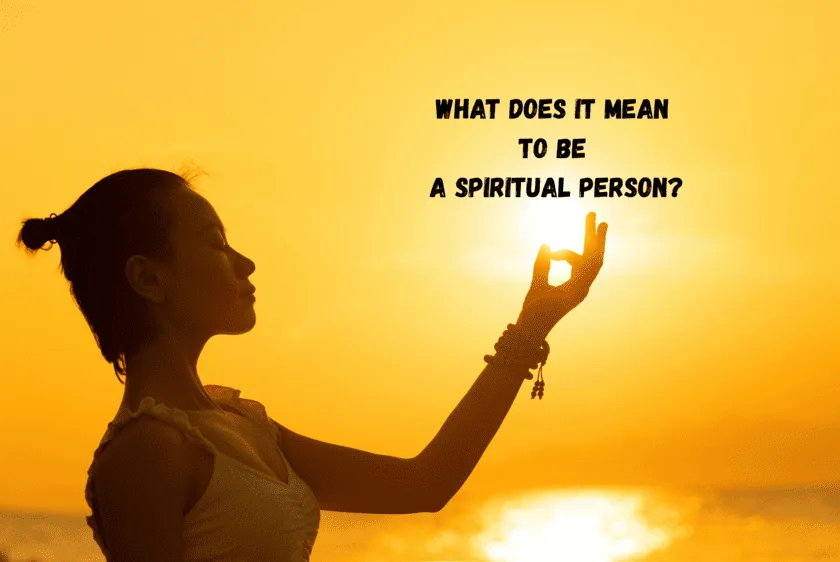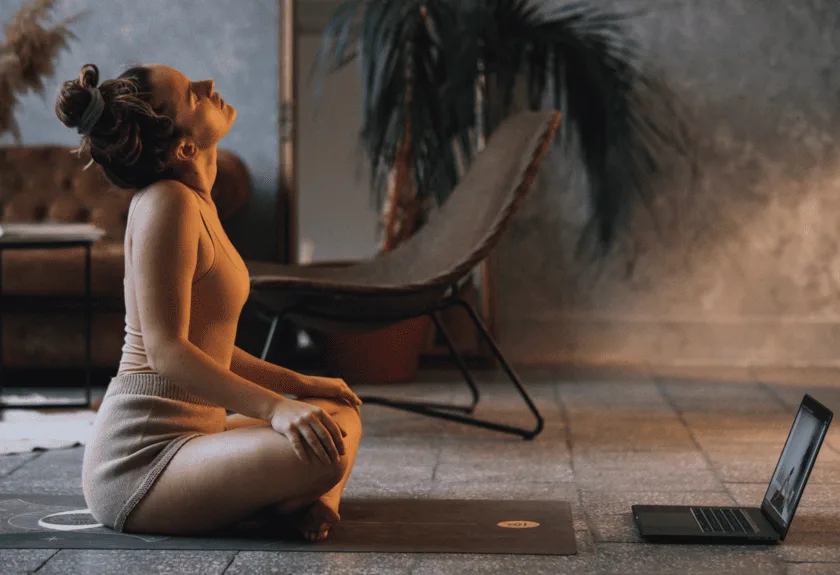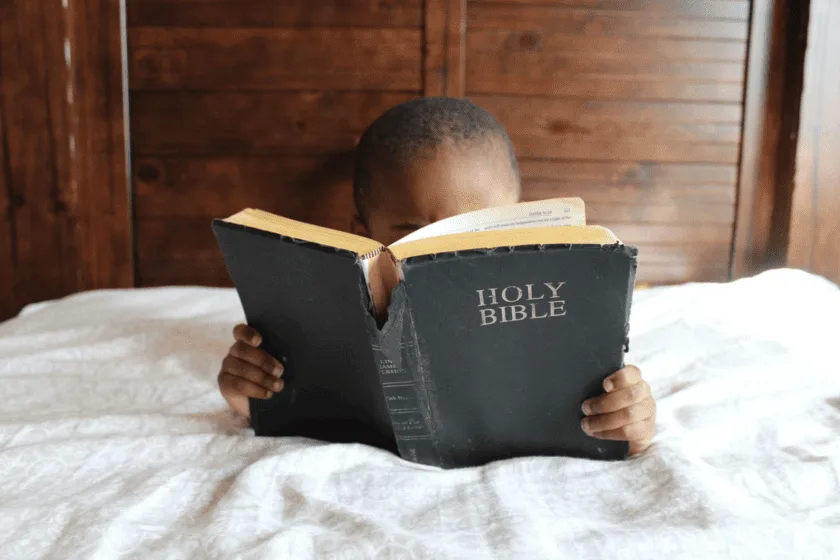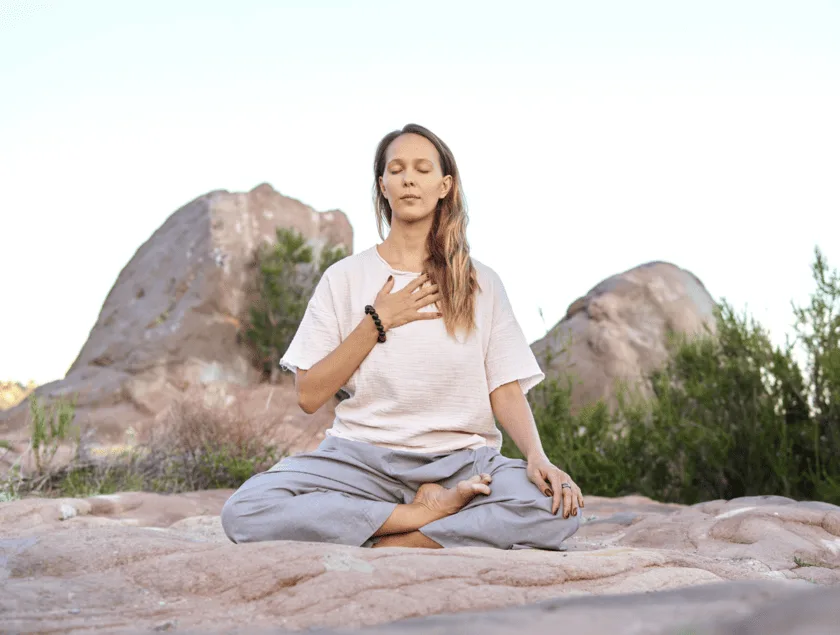Understanding Spirituality
Spirituality is often misunderstood as being synonymous with religion, but it’s much broader and more personal. At its core, spirituality is about connecting with something greater than yourself—whether that’s nature, the universe, or your inner self. It’s a journey of self-discovery, purpose, and meaning that doesn’t require adherence to any specific doctrine or belief system. For many, spirituality is a way to cultivate inner peace, mindfulness, and a deeper understanding of life’s complexities. What does it mean to be a spiritual person? Discover more!
Common Misconceptions About Being Spiritual
There are several myths surrounding spirituality that can create confusion or deter people from exploring it. Here are a few to consider:
- Spirituality is only for the religious: As mentioned, spirituality transcends religious boundaries. It’s about personal growth and connection, not dogma.
- You need to meditate for hours to be spiritual: While meditation can be a tool, spirituality can also be practiced through simple acts like journaling, walking in nature, or even mindful breathing.
- Spirituality is about being perfect: Being spiritual doesn’t mean you’re free from struggles or mistakes. It’s about embracing your imperfections and learning from them.
How Spirituality Connects to Everyday Life
Spirituality isn’t something reserved for retreats or special occasions—it can be woven into your daily routine. Here’s how:
- Mindfulness: Practicing mindfulness helps you stay present, reducing stress and enhancing your appreciation for the small moments.
- Gratitude: Taking time to reflect on what you’re grateful for can shift your perspective and foster a sense of contentment.
- Acts of kindness: Helping others or showing compassion can deepen your sense of connection and purpose.
By integrating these practices into your life, spirituality becomes a practical and accessible way to enhance your overall well-being, even amidst a busy schedule.
Signs You’re a Spiritual Person

Prioritizing Inner Peace and Self-Awareness
One of the most telling signs of a spiritual person is the consistent prioritization of inner peace. This doesn’t mean life is always calm or free of challenges, but rather that you actively seek moments of stillness and reflection. You might find yourself drawn to practices like meditation, journaling, or simply taking a few deep breaths to center yourself amidst chaos. Self-awareness plays a key role here—you’re attuned to your emotions, thoughts, and reactions, and you strive to understand their root causes. This awareness helps you navigate life with greater clarity and intention.
Feeling Connected to Something Greater
Spiritual individuals often experience a profound sense of connection to something beyond themselves. This could be a higher power, the universe, nature, or even humanity as a whole. You might feel this connection during moments of awe—like watching a sunset, listening to music, or helping someone in need. This sense of belonging to a larger whole fosters gratitude and humility, reminding you that you’re part of a vast, interconnected web of life.
Embracing Compassion and Mindfulness
Compassion and mindfulness are hallmarks of a spiritual mindset. You approach others with empathy and kindness, recognizing that everyone is on their own unique journey. This doesn’t mean you’re always perfect—spirituality is about progress, not perfection. Mindfulness, on the other hand, keeps you present in the moment. Whether you’re savoring a meal, listening to a friend, or simply walking, you’re fully engaged in the experience. This practice helps you cultivate a deeper appreciation for life’s simple joys and challenges alike.
Practical Ways to Cultivate Spirituality
Simple Daily Rituals for Busy Lives
In the hustle of daily life, cultivating spirituality doesn’t require grand gestures or hours of uninterrupted time. Small, intentional moments can become powerful rituals that ground and connect you to your inner self. Start with something as simple as taking a deep breath before you open your eyes each morning, or setting aside five minutes to sip your coffee mindfully, focusing on the warmth and aroma. Let this be your moment of stillness, even in a packed schedule. Another easy practice is to pause before meals and express silent gratitude for the nourishment. These tiny acts, repeated consistently, can create a sense of peace and alignment in your day.
Meditation and Breathwork for Beginners
Meditation and breathwork may sound intimidating, but they are accessible to everyone, even if you’ve never tried them before. Begin with just three minutes a day. Sit comfortably, close your eyes, and focus on your breath—inhale deeply through your nose for a count of four, hold for four, exhale for four, and repeat. This simple technique, known as box breathing, can calm your mind and center your energy. If thoughts arise, gently guide your focus back to your breath without judgment. Remember, there’s no “right” or “wrong” way to meditate; it’s about creating a space for stillness and self-awareness. Apps or guided meditations can also be helpful tools for beginners.
Finding Meaning in Small Moments
Spirituality isn’t always about profound revelations—it’s often found in the ordinary. Slow down and notice the beauty in everyday experiences: the soft hum of morning birds, the way sunlight filters through your window, or the sound of rain against the roof. Try keeping a small journal where you jot down one meaningful moment from each day. It could be a kind word from a colleague, a moment of laughter, or even the satisfaction of completing a task. Over time, this practice trains your mind to recognize and appreciate the sacred in the mundane, fostering a deeper connection to life’s simple joys.
Spirituality and Mental Well-Being
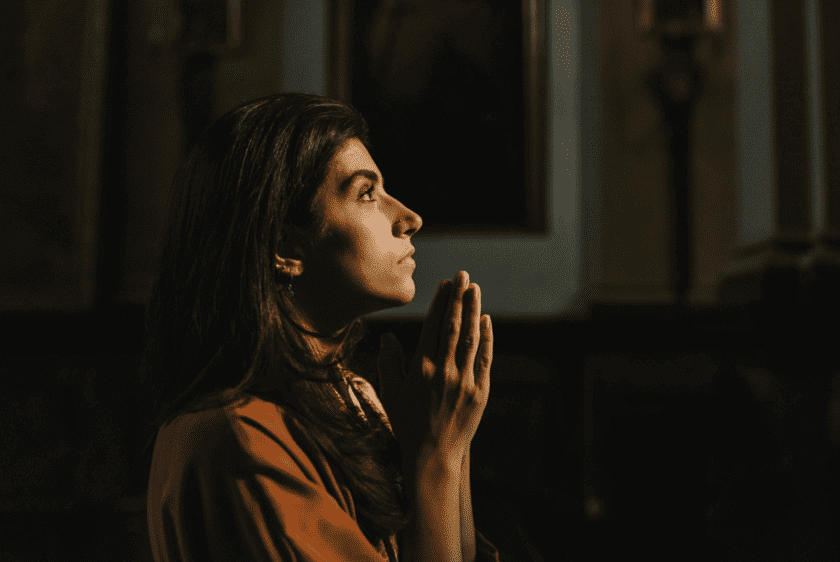
Reducing Stress Through Spiritual Practices
In the hustle and bustle of modern life, stress can feel like an inescapable companion. Yet, spirituality offers a refuge—a way to quiet the mind and reconnect with what truly matters. Practices like meditation, mindfulness, and gratitude journaling can act as anchors, grounding you in the present moment. Taking just five minutes a day to breathe deeply or reflect on what you’re grateful for can significantly lower cortisol levels, the hormone responsible for stress. It’s not about adding more to your to-do list, but rather finding moments of stillness amidst the chaos.
How Spirituality Supports Emotional Resilience
Life is full of ups and downs, and emotional resilience is what helps us bounce back from challenges. Spirituality nurtures this resilience by providing a sense of purpose and connection to something greater than ourselves. Whether it’s through prayer, meditation, or simply spending time in nature, these practices can help you cultivate a deeper understanding of your emotions and develop the strength to navigate them. They remind us that we’re not alone in our struggles, fostering a sense of community and inner peace even during tough times.
Balancing Logic and Intuition
In a world that often prioritizes logic and reason, intuition can feel like a neglected ally. Spirituality encourages us to strike a balance between the analytical mind and the wisdom of the heart. While logic helps us make informed decisions, intuition often guides us toward choices that align with our true selves. Practices like meditation or journaling can help you tune into your inner voice, creating a harmonious partnership between the rational and the intuitive. This balance not only enhances decision-making but also fosters a sense of alignment and authenticity in your daily life.
Overcoming Common Challenges
Dealing with Skepticism or Self-Doubt
It’s natural to question your spiritual journey, especially when faced with skepticism—whether from others or your own inner critic. The first step is to acknowledge these doubts without judgment. Remember, spirituality is deeply personal, and there’s no one-size-fits-all approach. Instead of seeking external validation, focus on how your practices make you feel. Journaling can be a powerful tool to reflect on your growth and reaffirm your intentions. Surround yourself with supportive communities or mentors who understand your journey and can offer encouragement. Above all, trust that questioning is part of the process—it’s how you deepen your understanding and authenticity.
Staying Consistent Without Burnout
Consistency is key to spiritual growth, but it shouldn’t come at the cost of your well-being. Avoid the trap of rigid routines that feel more like obligations than nourishment. Instead, prioritize quality over quantity. Even five minutes of meditation or a brief moment of mindfulness can be impactful if done with presence. If you feel overwhelmed, simplify your practices. For example:
- Choose one meditation technique instead of trying several at once.
- Integrate spirituality into daily activities, like mindful breathing during your commute.
- Set realistic goals, such as a weekly reflection instead of daily.
Remember, spirituality is not a race. It’s about creating a sustainable connection with yourself and the world around you.
Adapting Spirituality to a Modern Lifestyle
Modern life often feels fast-paced and demanding, leaving little room for spiritual practices. However, spirituality doesn’t require hours of solitude or a retreat in nature. It’s about finding small, meaningful ways to stay grounded amid the chaos. Here are some practical ideas:
- Micro-moments of mindfulness: Pause and take three deep breaths before starting a new task.
- Use technology to your advantage—try apps for guided meditations or spiritual podcasts during your downtime.
- Create a sacred space at home, even if it’s just a corner with a candle or a meaningful object.
By weaving spirituality into your daily routine, you can cultivate a sense of balance without adding to your to-do list. The key is to make it adaptable and accessible, even on your busiest days.
Spirituality in Relationships
Spirituality isn’t just a solitary journey—it thrives in connection. When we bring mindful awareness into our relationships, we create deeper bonds, foster understanding, and cultivate spaces where growth is nurtured. Here’s how spirituality can transform the way you relate to others—without dogma, without pressure, and with plenty of room for imperfection.
Deepening Connections Through Presence
How often do we listen to reply instead of listening to understand? True presence is one of the most profound gifts we can offer another person. It’s not about grand gestures; it’s about:
- Putting distractions aside—even for just 10 minutes—to truly engage.
- Listening with curiosity, not judgment.
- Noticing the unspoken—body language, pauses, emotions beneath words.

When we show up fully, relationships shift from transactional to transformational. Presence turns ordinary moments into sacred ones.
Setting Boundaries with Empathy
Spirituality isn’t about saying “yes” to everything—it’s about honoring your energy with kindness. Boundaries aren’t walls; they’re bridges to healthier connections. Try this approach:
- Clarity over guilt: “I need space to recharge” is just as valid as “I’d love to spend time with you.”
- Express needs without blame: “I feel overwhelmed when plans change last minute. Can we talk about this?”
- Respect others’ boundaries too—no spiritual practice justifies overstepping.
“Compassion without boundaries is self-sabotage.” — (paraphrasing Brené Brown)
Sharing Your Journey Without Preaching
When spirituality lights you up, it’s natural to want to share. But how do we inspire without imposing? Here’s the balance:
- Lead with experience: “Meditation helped me pause before reacting—want to try it together?” lands better than “You should meditate.”
- Normalize differences: “This works for me, but I’d love to hear what resonates with you.”
- Release the need to convert—trust that your growth will ripple outward naturally.
Remember: spirituality in relationships isn’t about perfection. It’s about showing up authentically, mess and all, and allowing connections to evolve at their own pace.
Your Unique Spiritual Path
Spirituality is not a one-size-fits-all journey. It is deeply personal, ever-evolving, and uniquely yours. In a world inundated with comparisons and external expectations, embracing your unique spiritual path is not just empowering—it’s essential. Here, we’ll explore why comparison doesn’t serve you, how to trust your inner guidance, and why small steps lead to lasting growth.
Why Comparison Doesn’t Serve You
It’s easy to fall into the trap of comparing your spiritual journey to others’. Social media, books, and even well-meaning friends can make it seem like there’s a “right” way to be spiritual. But the truth is, comparison is a thief of joy and authenticity. Your path is yours alone, shaped by your experiences, values, and inner wisdom. Comparing it to someone else’s diminishes its beauty and distracts you from what truly matters—your growth and fulfillment.
Instead of measuring yourself against others, focus on your own progress. Ask yourself: What brings me peace? What makes me feel connected? What resonates with my soul? These questions will guide you back to your unique path, free from the noise of external expectations.
Trusting Your Inner Guidance
At the heart of your spiritual journey lies your inner guidance—the quiet, intuitive voice that knows what’s best for you. Learning to trust this voice is one of the most transformative steps you can take. It may not always be loud or clear, but it’s there, waiting to be heard.
Trusting your inner guidance requires practice and patience. Start by creating moments of stillness in your day—whether through meditation, journaling, or simply sitting in silence. Over time, you’ll begin to distinguish between the noise of external influences and the wisdom of your own intuition. Remember, you are your own best guide.

Small Steps Toward Lasting Growth
Spiritual growth doesn’t require grand gestures or dramatic changes. In fact, small, consistent steps are often the most effective. Whether it’s setting aside five minutes daily for reflection, practicing gratitude, or being more mindful in your interactions, these small actions accumulate into profound transformation over time.
Here are a few simple practices to incorporate into your routine:
- Gratitude journaling: Write down three things you’re grateful for each day.
- Mindful breathing: Take a few deep breaths before starting or ending your day.
- Kindness practice: Perform one small act of kindness daily, no matter how minor.
Remember, spiritual growth is not a destination but a journey. Celebrate every step forward, no matter how small, and trust that you’re exactly where you need to be.
Frequently Asked Questions
Q: How do I stop comparing myself to others on my spiritual journey?
A: Start by focusing on your own experiences and progress. Remind yourself that everyone’s path is unique, and what works for someone else may not resonate with you. Practice self-compassion and celebrate your individuality.
Q: How can I learn to trust my inner guidance?
A: Create moments of stillness in your day to connect with your inner self. Journaling, meditation, or simply sitting in silence can help you tune into your intuition. Over time, you’ll learn to distinguish your inner voice from external noise.
Q: What if I don’t have time for big spiritual practices?
A: Spiritual growth doesn’t require hours of practice. Start small with simple, consistent actions like mindful breathing, gratitude journaling, or acts of kindness. Even a few minutes daily can make a significant impact.
Your spiritual journey is a testament to your resilience, curiosity, and desire for connection. By releasing comparison, trusting your inner wisdom, and embracing small steps, you’ll find that your path becomes clearer, more fulfilling, and uniquely your own. You are exactly where you need to be—trust the process.
Reference:
- Mohandas, E. (2008). Neurobiology of spirituality. Indian Journal of Psychiatry, 50(4), 233–241. https://www.ncbi.nlm.nih.gov/pmc/articles/PMC3190564/
- Creswell J. D. (2017). Mindfulness Interventions. Annual review of psychology, 68, 491–516. https://doi.org/10.1146/annurev-psych-042716-051139
- Zhang, J., Yang, Y., Ma, H., & Zhang, J. (2023). Psychosocial-spiritual well-being is related to resilience and mindfulness in patients with severe and/or life-limiting medical illness. BMC Palliative Care, 22, 133. https://www.ncbi.nlm.nih.gov/pmc/articles/PMC10494355/
